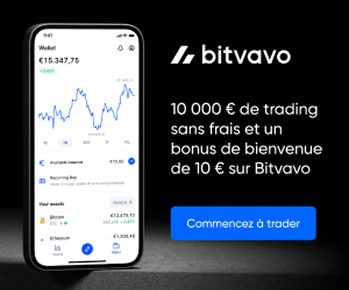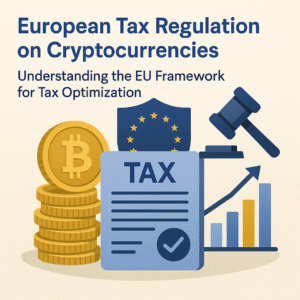Ontology (ONT): Crypto Analysis, Functioning, Price, and Buying Guide
Introduction & SEO Hook
Ontology (ONT) is a cryptocurrency focused on digital identity, data management, and interoperability between blockchains. Often compared to Neo, this project stands out with its robust technical infrastructure and privacy-centric approach. In this analysis, learn how Ontology works, how to buy it, where to store its tokens, and what its long-term prospects are.Key takeaways
Key Takeaways
- Short-term ONT price volatility: subject to general crypto market trends.
- Key growth drivers: digital identity adoption, partnerships in Asia, Web3 innovations.
- Long-term potential: strong in tokenization and decentralized identities.
Ontology (ONT) Overview
Symbol: ONT Category: Blockchain Infrastructure / Decentralized Identity Main Function: Provides infrastructure for secure digital identity and data services. Ontology is a public blockchain designed to offer decentralized solutions for identity and data management in enterprises. Unlike mainstream blockchains like Bitcoin or Ethereum, Ontology directly targets professional and governmental use cases. It enables the creation of trust ecosystems without compromising data privacy. Launched by the Chinese company Onchain, Ontology aims to bridge traditional systems (banking, legal, administrative) with the decentralized Web3 universe. Through its identity protocols and modularity, it has become a key player in the digital economy focused on data sovereignty. Its native token ONT is used for network governance and staking, which generates ONG, the network’s gas token. This infrastructure is particularly well-suited for financial services, KYC verification, decentralized social networks, and blockchain games.Platforms to buy ontology
How Ontology Works
Ontology is built with a high-performance architecture designed for enterprise-level use. Here are the key elements to understand how ONT functions:A Modular and Efficient Blockchain
- Consensus Type: Ontology uses VBFT, a hybrid of Proof of Stake (PoS), Byzantine Fault Tolerance (BFT), and block verification by voting.
- EVM Compatibility: Not native, but bridges to Ethereum are being developed to enhance interoperability.
- Layer 1 Network: Ontology is a standalone layer-1 blockchain, not dependent on another main network.
Technical Features
- ONT ID: A digital identity system enabling users to create, manage, and verify their identity on the blockchain.
- ONG (Ontology Gas): The second token used for transaction fees. ONT is the main token, and ONG is generated passively by staking ONT.
- Smart Contracts: Run on Ontology’s virtual machine (NeoVM), optimized for speed and security.
- Interoperability: Via its OScore framework and bridges with Neo, Ethereum, and Polkadot.
ONT Token Utility
- Participate in governance
- Stake to generate ONG
- Indirect payment of transaction fees
- Access services like ONT ID and Ontology’s NFT marketplaces
Summary (Bullet Points):
- Scalable Layer-1 blockchain
- Dual-token model: ONT (staking) + ONG (fees)
- Ideal infrastructure for Web3, DeFi, and digital identity
Founders and Team
Project History and Launch
Ontology was officially launched in March 2018 by Shanghai-based Onchain, which also created the Neo project — making the two highly complementary.Key Milestones
- 2017: Whitepaper published and testnet launched
- March 2018: Mainnet officially launched
- 2018–2019: Development of ONT ID and the dual-token mechanism (ONT/ONG)
- 2020: Integration with Binance Smart Chain, Ledger wallet compatibility
- 2022: Launch of Ontology EVM (testnet)
- 2023–2025: Focus shift toward Web3 services and sovereign identity
Fundraising and Token Allocation
Unusually, Ontology did not conduct a public ICO. Tokens were distributed via airdrop campaigns and partnerships with companies, helping the project avoid regulatory restrictions, particularly in China.Founding Team
- Jun Li – Founder and Chief Architect Former tech lead at Infosys, blockchain expert, graduate of Shanghai University.
- Andy Ji – Co-founder Former blockchain director at Hyperledger Asia, expert in distributed governance.
What Makes [Nom cryptomonnaie] Unique?
Ontology’s Unique Features
Ontology stands out with its exclusive focus on decentralized digital identities and privacy protection, while being fast, modular, and interoperable. Here are its core use cases and unique value propositions:Concrete Use Cases
1. Digital Identity (ONT ID)
ONT ID allows individuals or enterprises to create self-sovereign, cryptographically verifiable digital identities. These identities can be used to:- Simplify KYC processes for crypto exchanges
- Securely access Web3 dApps
- Authenticate in blockchain games
- Certify diplomas or official documents
2. Data Management and GDPR Compliance
Ontology enables enterprises to manage user data while complying with privacy regulations. Data can be encrypted, stored off-chain, and cryptographically linked to ONT ID.3. Payments and Microtransactions via ONG
Thanks to the ONG token, Ontology allows near-instant and low-cost payments — ideal for Web3 apps such as gaming, NFTs, and microservices.4. Interoperability Across Blockchains
With bridges to Ethereum, Neo, Binance Chain, and soon Polkadot, Ontology can move tokens and data between blockchains.Unique Value Proposition
- Comprehensive infrastructure for digital identity management
- Compliance with privacy and data sovereignty standards
- Unique dual-token model (ONT / ONG)

Comparison with Other Projects
| Project | Main Objective | Decentralized Identity | Dual Token | Interoperability |
| Ontology | Identity & Data | Yes | Yes | Yes |
| Ethereum | General-purpose smart contracts | No | No | Yes |
| Neo | Smart contracts + finance | Partially | Yes | Yes |
| Civic | Identity verification | Yes (limited) | No | Low |
| Polkadot | Multi-chain interoperability | No | No | Very high |
Conclusion and Outlook
Ontology positions itself as a key player in the Web3 ecosystem, with a strong specialization in digital identity, privacy, and data governance. Its dual-token structure and modular architecture make it a technically advanced yet accessible blockchain, built for longevity. With the rise of Web3 services, regulatory compliance (like MiCA in Europe), and growing demand for secure infrastructures, Ontology could play a central role.
FAQ – Ontology: Frequently Asked Questions
What is the ONT token used for? ONT is used for network governance and staking to generate ONG, which is used to pay transaction fees. Is it a good investment? Ontology holds a strategic position in digital identity. Its potential will depend on institutional adoption and Web3 development. How is it different from Ethereum? Ethereum is a general-purpose blockchain, while Ontology specializes in decentralized identity and data management. Where can I store ONT tokens? You can store ONT in wallets like Ledger, Trust Wallet, ONTO Wallet (official), or Metamask (via EVM bridges). Is the project secure? Yes. Ontology includes several layers of security, governance through staking, audited code, and a proven VBFT model.Disclaimer :
Trading is risky and you may lose all or part of your capital. The information provided does not constitute financial advice and/or an investment recommendation
Top-Rated Platforms to Trade Crypto
Explore Our Financial Views on the Market
Crypto News & Insights
Digital Assets Forum 2026 returns to
The Digital Assets Forum (DAF), one of Europe’s most respected...
Blockchain and Cryptocurrency Conference (B2C’ 2025):
The Blockchain and Cryptocurrency Conference (B2C’ 2025) is scheduled for...
European Tax Regulation on Cryptocurrencies: Understanding
The regulation of the cryptocurrencies market in the European Union...













